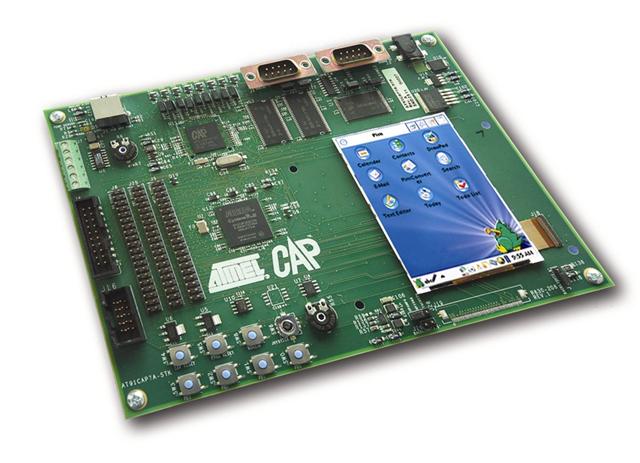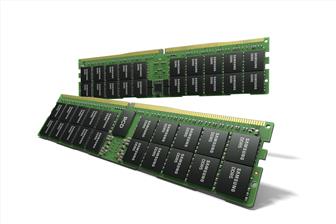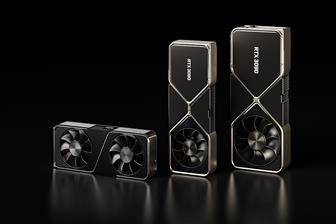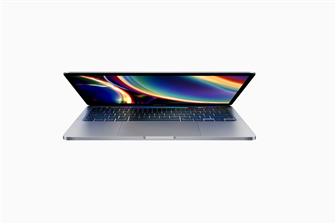
Atmel has announced today its CAP7L customizable microcontroller (MCU) that allows fabless semiconductor companies to implement ARM7 processor-based SoCs with a turn-around period as low as 12 weeks, a nominal NRE charge of only US$75,000, and unit costs as low as US$5, without requiring a separate license from ARM.
AT91CAP7L devices are standard product microcontrollers with up to 200K gates of metal programmable cell fabric that can be used to implement proprietary customer IP, hardware accelerators, additional processor cores or unique peripherals sets to achieve a customized SoC.

Samsung HKMG DDR5
Samsung Electronics has expanded its DDR5 DRAM memory portfolio with a 512GB DDR5 module...
Photo: Company

Nvidia GeForce RTX 30 series GPUs
Nvidia's GeForce RTX 30 series GPUs are powered by the company's Ampere architecture. The...
Photo: Company

Apple HomePod mini
Apple's HomePod mini is the newest addition to the HomePod family. At just 3.3 inches tall,...
Photo: Company

Apple 13-inch MacBook Pro with Magic Keyboard
Apple has updated the 13-inch MacBook Pro with the new Magic Keyboard for an improved typing...
Photo: Company

Apple iPad Pros
Apple's new iPad Pros comes with the latest A12Z Bionic chip, an ultra-wide camera, studio-quality...
Photo: Company
- Silicon photonics set for takeoff (Oct 30) - EE Times
- TikTok founder becomes China's richest man (Nov 1) - BBC News
- Nvidia to take Intel's spot on Dow Jones Industrial Average (Nov 1) - Reuters
- Huawei's latest AI processors were made by TSMC (Oct 22) - Bloomberg
- Arm to scrap Qualcomm chip design license in feud escalation (Oct 23) - Bloomberg
- Embedded World brings 3,500 visitors to 1st US outing (Oct 11) - EE Times
- Preparing electronics engineering students for industry (Oct 8) - EETimes Europe
- Former Apple hardware chief Dan Riccio is retiring (Oct 11) - Ars Technica
![]() Microsoft's custom chip sets new industry benchmark while deepening AI partnerships across sectors
Microsoft's custom chip sets new industry benchmark while deepening AI partnerships across sectorsAs Microsoft transitions from a software giant to a cloud leader, with its cloud business now accounting...
![]() Trump 2.0
Trump 2.0On November 5, 2024, Republican candidate Donald Trump won the US presidential elections, setting him up for a second go-around in the White House. Due...

CSP in-house development of ASIC accelerators
Google TPUs will see a share of over 70% in the in-house developed cloud ASIC accelerator market in 2024; an all-optical network...

AI chip market outlook 2023-2028: Insights from demand and supply perspectives
The growing demand for AI computational power is accelerating advancements in hardware and chip technology, necessitating innovation...

Automotive CIS tech development, 2024
The popularization of autonomous driving is boosting demand for automotive CIS with LFM and HDR being mainstream development...






